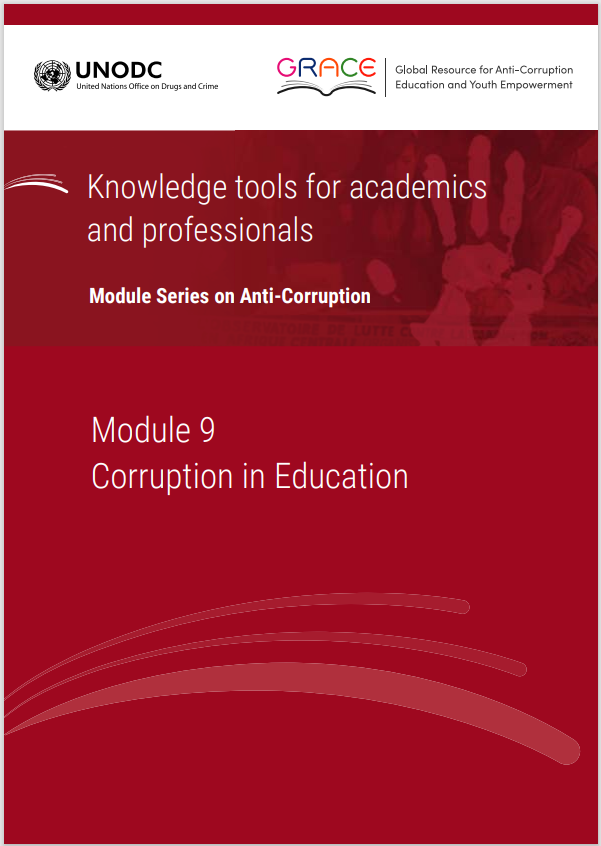This module is a resource for lecturers
Causes of corruption in education
Where does corruption in education come from? A useful way to think about why and when individuals would engage in corruption is to start from the rewards and drawbacks of such acts. A leading model of crime was developed by Becker and Stigler (1974), who showed that individuals will engage in a criminal activity if they calculate that they have more to gain than to lose from it. Benefits may come in the form of money or non-financial advantages, while potential losses or costs may come in the form of punishment, for example shaming, fines or prison. In their mental calculation, individuals also estimate how likely it is that they will be caught and punished - which is based on the probability of detection. This accounting is common across sectors, but the costs, benefits and the chance of detection take specific forms in education. According to Hallak and Poisson (2007, pp. 40-41), the main factors that explain corruption in education are:
On the benefits side:
- The high rate of return: Because people hope to get a well-paid job through educational degrees, some people are willing to pay bribes or engage in other corrupt practices to improve their records on paper or gain a formal qualification. Where school funding or educator remuneration is tied to student performance, there are strong incentives for malfeasance among educators and principals, be it cheating or illicit agreements to attract more students. Jacob and Levitt (2003) discuss the perils of high-powered incentive education systems.
- Low salaries of public officials and educators: In some countries, the salaries of educators do not support even a basic livelihood, or are perceived as unfairly low relative to the workload - which may lead educators to use their position of power to extract payments and other benefits. Borcan, Lindahl and Mitrut (2014) showed how a 25 per cent austerity-driven wage cut for all teachers in Romania led to more cheating in a national exam. As in other sectors, officials and educators may have paid a bribe to gain their position in the first place, so continued fraudulent acts are a predictable outflow.
On the costs side:
- Weak ethical norms and poor rule of law: In places where corruption is widely prevalent, the moral resistance to engaging in corruption is substantially reduced. This factor makes it more difficult to fight corruption in many sectors and countries, including in those experiencing economic crisis or political transition. Moreover, if law enforcement is known to be weak, then punishments and the possibility of detection are virtually absent, making it worthwhile to take part in corruption. To learn more about ethics, see the E4J University Module Series on Integrity and Ethics.
On the detection side:
- The complexity of education and lack of transparent governance: The multiplicity of goals of educational institutions and the over-centralization or decentralization of decision-making processes often make institutional rules opaque to the beneficiaries and the general public. Accountability is diffused across many beneficiaries of education and regulating bodies, making it unclear to whom schools and universities truly answer. The balance often tips towards the bureaucrats, and when they are themselves corrupt, the very concept of accountability becomes moot. On top of this, abuses of confidentiality principles and ad hoc decision-making without a proper paper trail mean that corrupt decisions are more easily covered up and harder to detect.
- The size and distribution of education: Schools, staff and accompanying administrations represent resources that are usually spread across the length and breadth of countries. This makes tracking resources more difficult and oversight of potentially corrupt conduct more complex.
Corruption in education intersects with questions of integrity and ethics in both the private and public sectors, which are discussed in further detail in Module 11 and Module 13 of the E4J University Module Series on Integrity and Ethics and in Module 4 and Module 5 of the E4J University Module Series on Anti-Corruption. For a general discussion of professional ethics, which also applies to education, see Module 14 of the E4J University Module Series on Integrity and Ethics.
 Next: Fighting corruption in education
Next: Fighting corruption in education
 Back to top
Back to top
